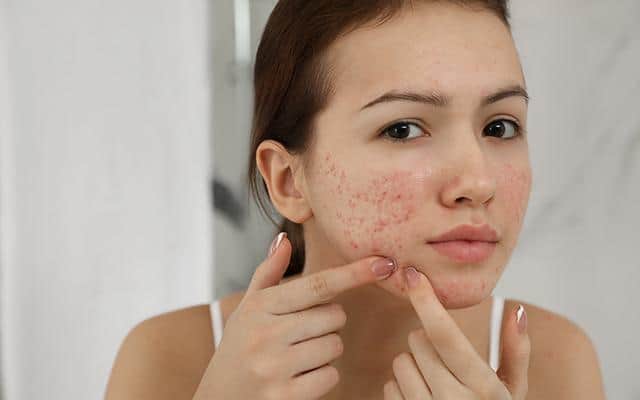Acne is a prevalent skin issue that affects people all over the world. Adult acne, while common during adolescence, can be problematic and indicate an underlying health concern. As a result, it’s a good idea to have it checked out by a doctor.
However, there is no harm in learning about the tips and tactics that may help you regulate it and eliminate the problem entirely. Acne is usually caused by improper skincare and dietary habits. Clean diet, staying hydrated, and utilizing the correct skincare products, as well as remaining physically active, may all help.
The ancient science of Ayurveda, according to Ruchita Acharya, the creator of Glow and Green, a beauty content platform, mixes modern lifestyles and health-conscious behaviors with natural elements, medications, and herbs to help us live a disease-free and healthy existence.
“The basic goal of Ayurveda is to restore a person’s mental, physical, and spiritual equilibrium.” “This gives us the knowledge we need to heal our disorders, such as acne and other skin problems,” she explains.
“Aloe vera is both efficient and effective. Its anti-inflammatory effects are particularly powerful, making it a viable treatment for acne that presents in inflammatory blemishes like pustules and nodules, in addition to antioxidants, enzymes, and vitamins A and C. Aloe vera helps to cleanse the skin softly. It’s an antiseptic that works to keep microorganisms at bay. It contains polysaccharides and gibberellins, which aid in cell development while also reducing inflammation and redness. It works as an astringent by removing excess sebum, debris, and bacteria from the pores. “It may be used to treat acne, as well as burns and dry skin,” she says.
Cut an aloe vera plant in half, then apply the gel straight to your pimple with a cotton swab. Alternatively, you may get a bottled version from a health shop and follow the directions on the label.
To witness the results, use this procedure for 10-15 days. Make this a part of your everyday routine and see the difference!
While there are no known adverse effects from aloe vera, the expert advises that you make sure you are not allergic to it.







